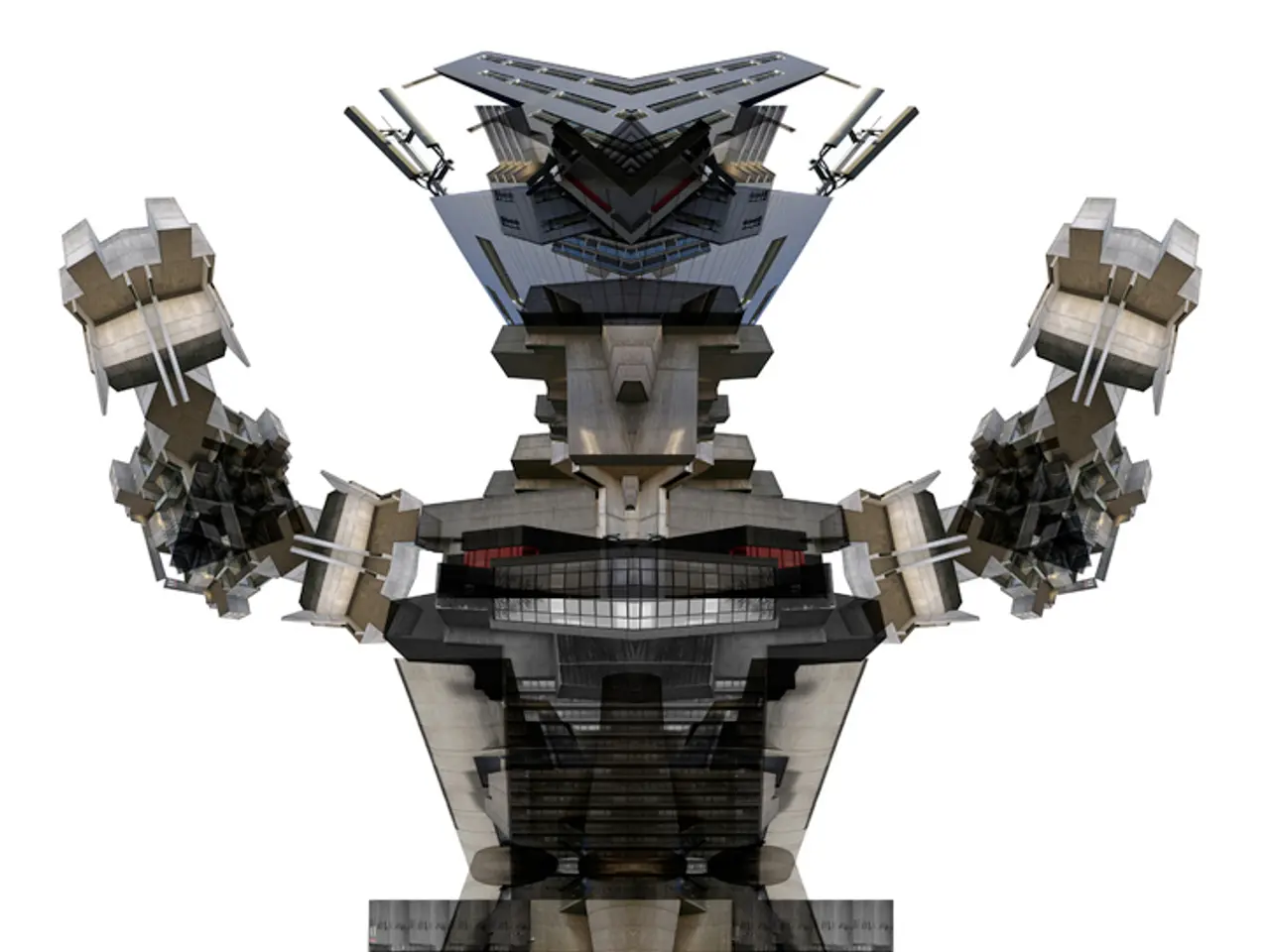Which Career Path Offers Brighter Opportunities: Internet of Things (IoT) or Robotics?
In the rapidly evolving world of technology, two sectors that stand out for their potential are Robotics and Internet of Things (IoT). Both fields are poised to offer strong career prospects, each with its unique advantages and demands.
Future Potential & Industry Demand
Robotics, a core technology in Industry 4.0, is driving smart factories, automated production, and advanced manufacturing processes. The demand for professionals who can design, implement, and maintain robotic systems, as well as analyze data from these systems, is growing [2][5].
On the other hand, IoT is expanding rapidly as more devices connect across industries. Expertise in IoT architecture, security, and data analytics is crucial for designing scalable, secure networks of connected devices, making IoT professionals indispensable [2]. Robotics and IoT are increasingly intertwined, with robust connectivity like 5G and cellular IoT supporting remote operation and real-time navigation in robotics [3].
Salaries
While salaries in both fields are competitive, Robotics engineers and related AI/ML roles typically earn from about $95,000 to over $130,000 annually, depending on specialization and credentials [4][5]. IoT roles like 5G network engineers or specialists in IoT security tend to have salaries ranging roughly $75,000 to $95,000 per year, though this can vary widely with experience and industry [1][2]. AI and machine learning roles that intersect with both fields often command higher salaries, sometimes exceeding $120,000 - $140,000 per year [1][4].
Skill Overlaps and Trends
Robotics professionals benefit from skills in AI, machine learning, and advanced manufacturing, while IoT professionals need strong skills in network architecture, security, and data analytics. Both fields demand continuous learning due to rapid technological evolution and talent shortages driving competition and better compensation [2].
Career Opportunities
In the field of Robotics, in-demand job roles include Robotics Engineer, Mechatronics Engineer, AI/ML Engineer (for robotics), Controls Engineer, Autonomous Systems Developer, and Research Scientist (Robotics) [6]. Examples of robots range from industrial robots in manufacturing to robotic arms in surgery, delivery robots, and humanoid robots [7].
On the other hand, IoT offers a broader range of job roles, including IoT Developer, Embedded Systems Engineer, IoT Solutions Architect, Cloud Engineer (IoT), IoT Data Analyst, and Firmware Engineer [8]. Industries hiring for IoT roles include smart home automation, healthcare, agriculture, manufacturing, and smart cities and infrastructure [9]. Examples of IoT systems include smart thermostats, wearable fitness trackers, industrial sensors, and connected vehicles [9].
Salary Expectations
IoT developers can expect an average salary of $90,000 - $120,000 per year, while robotics engineers can expect $95,000 - $130,000 [10]. IoT solutions architects can expect $110,000 - $140,000, and AI/ML engineers (for robotics) can expect $120,000 - $160,000 [10].
Passion and Interest
If you have a strong background in engineering, AI, and control systems, and are passionate about building intelligent machines, consider a career in robotics. If you enjoy working with networks, sensors, and real-world data, and want a broader field with more diverse roles, consider a career in IoT.
Future Outlook
By 2030, it is expected that IoT will connect more than 75 billion devices [11]. The focus in IoT is shifting to edge computing, 5G, and AI integration [12]. Robotics involves the design, construction, programming, and operation of machines that can perform tasks autonomously or semi-autonomously [13].
In summary, both Robotics and IoT offer promising career paths. While Robotics currently offers slightly better salary prospects and is central to a transformative industrial revolution, IoT expertise is critical for the connectivity backbone enabling these robotic and smart systems, ensuring strong career demand as well. Candidates with multidisciplinary skills bridging both fields may find the most promising opportunities.
References: [1] https://www.payscale.com/research/US/Job=5G_Network_Engineer/Salary [2] https://www.forbes.com/sites/forbestechcouncil/2020/08/20/why-the-internet-of-things-is-more-important-than-ever/?sh=5e827f682c8e [3] https://www.forbes.com/sites/forbestechcouncil/2019/11/20/5-ways-5g-will-revolutionize-robotics/?sh=7b5f8a706194 [4] https://www.payscale.com/research/US/Job=Robotics-Engineer/Salary [5] https://www.roboticsbusinessreview.com/articles/2020/01/robotics-engineering-job-market-in-2020/ [6] https://www.roboticsbusinessreview.com/articles/2019/12/top-10-robotics-engineering-jobs-in-2020/ [7] https://www.roboticsbusinessreview.com/articles/2019/12/robotics-market-trends-2020/ [8] https://www.simplilearn.com/tutorials/iot/what-are-the-top-10-iot-job-roles-in-2020 [9] https://www.forbes.com/sites/forbestechcouncil/2020/08/20/what-are-the-most-promising-career-paths-in-iot/?sh=740066e84669 [10] https://www.payscale.com/research/US/Job=IoT-Developer/Salary [11] https://www.statista.com/statistics/1124894/number-of-connected-devices-worldwide/ [12] https://www.forbes.com/sites/forbestechcouncil/2020/08/20/what-the-future-of-iot-holds-for-businesses/?sh=6916649e316c [13] https://www.britannica.com/technology/robot-robotics-and-automation
To capitalize on the emerging opportunities in technology, consider pursuing education and self-development in embedded systems, a crucial skill for IoT professionals who design, implement, and maintain the network of interconnected devices. Additionally, an embedded system is essential for robotics, where it enables the programming and operation of machines for autonomous or semi-autonomous tasks. Therefore, understanding embedded systems can provide a strong foundation for careers in both robotics and IoT.




